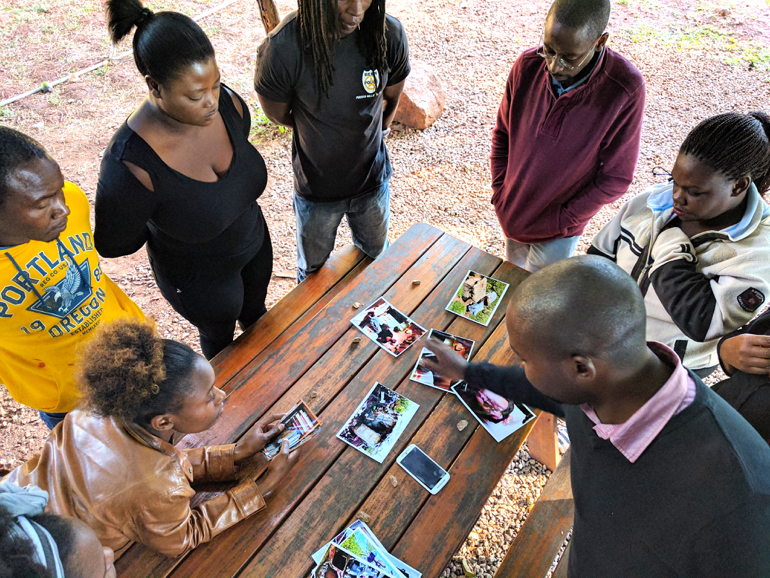
A trainer must not shout at participants or get into loud arguments. They must not make those attending their courses feel small or humiliate them.
Some fairly strong points made by participants on a media training of trainers course in Vietnam.
At the start of the course I’d asked for participants to list the strengths and weaknesses of a trainer – based on their own experience. From what I jotted down it seems some have been on some scary and intimidating courses delivered by some seriously disturbed people.
I thought it worth republishing some does and don’t from the perspective of Vietnamese journalists. Having asked similar questions in Azerbaijan recently it seems that many of us who deliver training still have a lot to learn.
A trainer must not:
- Impose their views and opinions without considering the views of the students.
- Start by giving the impression that they know best.
- Introduce ideas that may work in other countries but which have no bearing on the situation faced by participants.
- Be judgemental and superior in attitude.
- Offer unrealistic targets, aims and objectives.
- Reject any comments or ideas from the student without consideration or discussion.
- Get into loud argument with trainees if there is a disagreement.
- Stop the trainees when they are talking during group discussions but allow them to make their point.
- Offer old out-of-date information.
- Read from text books and ask participants to write down what they say.
- Display a lack of enthusiasm for the topic and appear bored and disinterested.
- Focus on theory only and fail to understand the needs of the trainees (inadequate research).
- Provide training without adequate research and offering material that has no relevance to the region and the work of the participants.
- Make the student feel they are bad students by criticising their ideas or humiliating them publicly.
- Become angry with students when they make mistakes such as forgetting to do homework or not pay attention in the lessons.
- Give negative feedback to the students. By doing that you will damage confident.
- Create barriers to learning by failing to encourage interactivity between the trainer and the participants.
- Lose the focus by answering the phone or talking to one individual only.
A trainer must:
- Take time to understand trainees by allowing them to introduce themselves and talk about the issues they face.
- Find examples to illustrate any theory that are locally-relevant, persuasive and easy to understand.
- Include a local co-trainer in the sessions who understands local issues and can help by offering local perspectives.
- Encourage participation at all times and create an atmosphere that allows participants to express themselves.
- Treat students as colleagues and partners and be open to exchange ideas and work together.
- Carry out a thorough survey before designing training (research).
- Choose the appropriate participants for the course.
- Persuade the manager to take part in the course so that they can apply what they have learned in their activities and will encourage other participants.
- Prepare well and give participants the sense that the course is professional.
- Use open questions and open debate to enable participants to voice any issues.
- Sum up after group discussions taking on board all remarks and comments and evaluating them.
- Introduce small ice-breaking activity before any lesson in order to create the right atmosphere and make the training more effective.
- Always set challenges for the student to overcome and continually stretch the group.
- Work with participants on a project throughout the course combining course learning and participants’ input.
- Consider token rewards to – low in value – as an course theme and to create good humour and participation.
- Prepare a gift for the best students in the class. This gets good feedback from the student. Tell the student why they get the gift (low in value, but very meaningful).
- Be friendly and try to use all his talents and tricks to make it humorous and funny.
- Sometimes we quarrel but it is okay with humour.
- Encourage all participants to be involved in the activity and consider changing role play and allowing some to become the trainer for a session.
- Continually refresh information with latest developments to ensure that all is relevant and up-to-date.
- Have enough practical exercises for group work with the trainer joining some of the groups if they are facing difficulties.
- Respect the group by being smart, punctual, disciplined and focused.
- Treat trainees as friends and be sensitive to any student who may be struggling.
All sound advice. On the theme of being non-judgemental and ensuring that what we share is regionally and culturally relevant, Maria Eismont the Director of Russian Independent Print media programme of the New Eurasia Foundation summed it up well in the article on this site titled How media assistance could improve.
“You may represent a country with centuries of independent media history and you may be going to work in a country with no history of media freedom at all – there will be things you will need to learn from them.”
Wrong attitude, wrong training
All of which underlines the importance of the trainer having the right attitude. You may have wonderful experiences to share, but if you offend and alienate it’s game over.
You may have carried out the most exhaustive research for your training and spent hours designing a wonderful training course, but if you come across as arrogant, removed, distracted, detached, uncaring, out-of-touch and out-of-date when you deliver that training you will have wasted your time and that of your participants.
One of the most important points for a trainer to remember is to never presume that the solutions you may have successfully applied in the country you come from will work elsewhere in the world.
Of course, with adequate research and by immersing yourself in how journalists work in the country in question, this should not be an issue. However, even after thorough research bad attitudes can undermine training.
Best to take the approach that those you are trying to help are already doing a great job and that your role is to share some ideas that might make them more effective and their lives more fulfilling.








